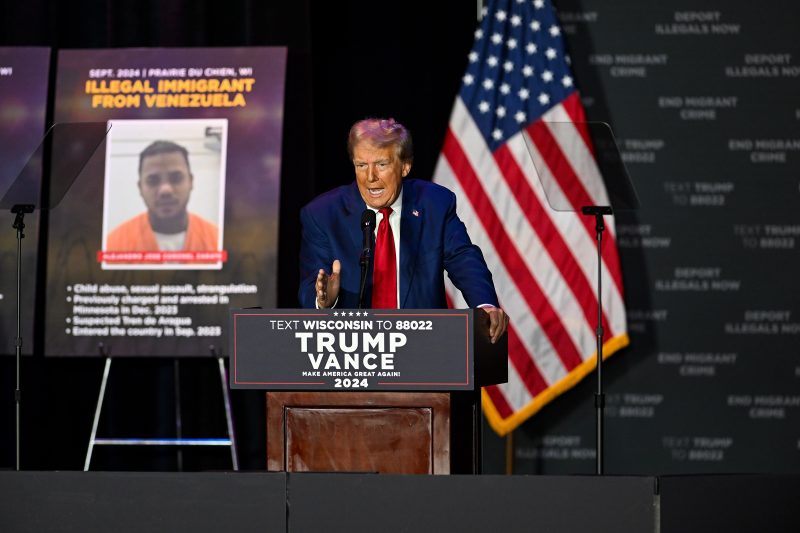In a recent speech, former President Donald Trump made an outrageously false claim that there are 13,000 migrant murderers on the loose in the United States. This provocative statement has once again ignited a debate on the topic of immigration, fear-mongering, and the spread of misinformation in political discourse.
Trump’s unsubstantiated assertion plays into the narrative of portraying immigrants as dangerous criminals who pose a grave threat to American society. By using inflated and misleading figures, he is attempting to stoke fear and build support for his hardline immigration policies.
However, a closer look at the facts reveals a starkly different reality. According to data from the U.S. Department of Justice, the number of undocumented immigrants convicted of homicide is actually lower than the general population. Studies have shown that immigrants, both legal and undocumented, are less likely to commit crimes than native-born Americans. The vast majority of immigrants come to the U.S. in search of a better life, not to engage in criminal activities.
Trump’s claim of 13,000 migrant murderers on the loose not only demonizes a vulnerable population but also distracts from the real issues surrounding immigration reform. By perpetuating falsehoods and exaggerations, he is undermining efforts to have a rational and fact-based conversation about immigration policy.
This incident serves as a reminder of the power of misinformation in shaping public opinion and influencing political decisions. In today’s digital age, where information spreads rapidly through social media and other online platforms, it is more important than ever to fact-check and critically evaluate the statements made by political figures.
As citizens, we have a responsibility to seek out accurate information, question dubious claims, and hold our leaders accountable for the statements they make. By staying informed and critically analyzing the narrative presented to us, we can help combat the spread of falsehoods and promote a more honest and constructive public discourse.






















